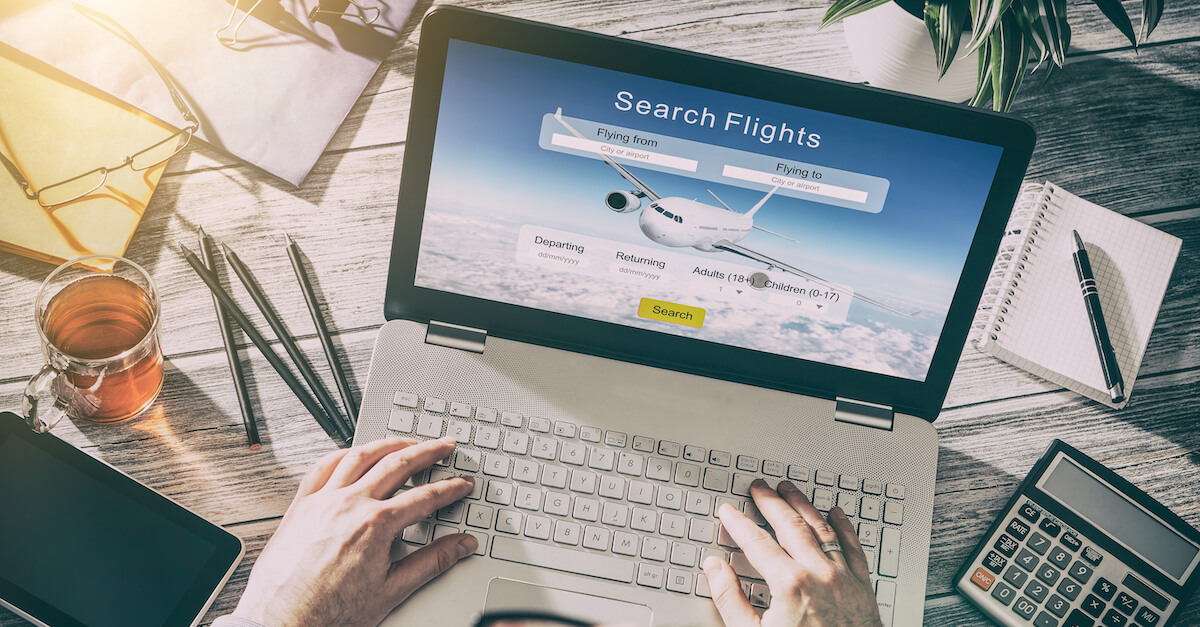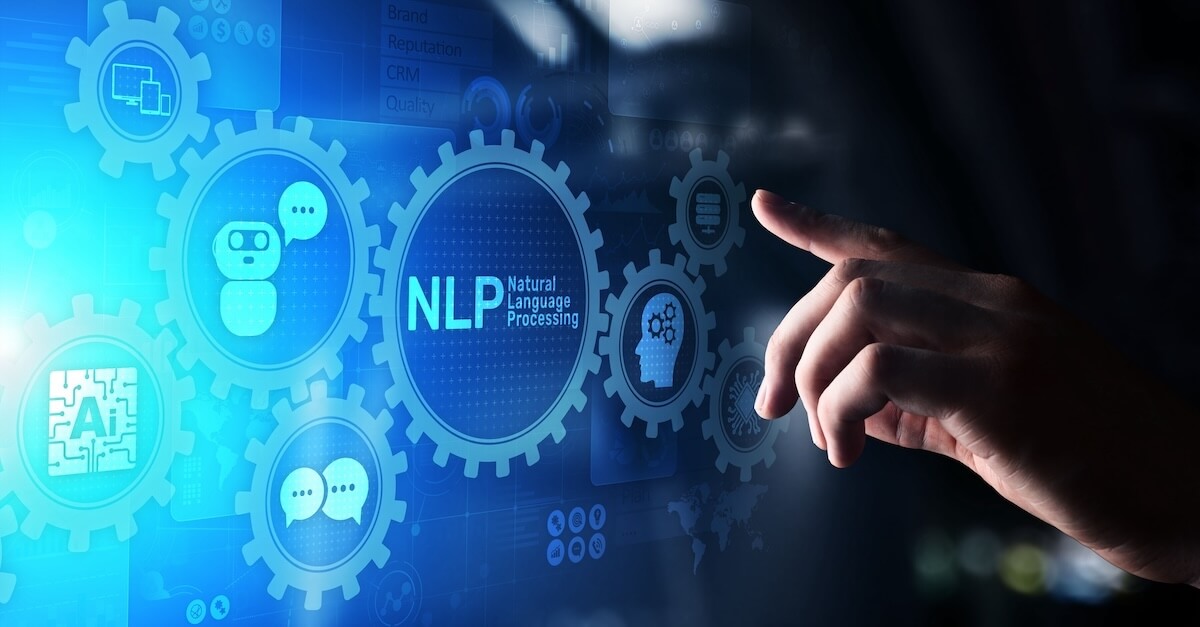June 21, 2023
Travel Marketing Trends and Changes in Tourism Consumer Behavior
By Liza Colburn

Today’s consumers are traveling more often than in previous years. Multiple consumer travel marketing trends studies (including Persado’s) have found the same upward trend in travel plans and bookings. According to Hopper’s 2023 Travel Trends Report, 59.3% of respondents plan on spending more on travel in 2023 than they did in 2022. 53.6% plan on taking more trips in 2023 than they did the previous year. Persado’s 2023 Consumer Travel Survey shows more of the same results. 74% of the respondents said they plan to take the same or more vacations this year as they did in 2022. In fact, consumers seem to be prioritizing travel over other leisure expenses.
Economic changes and personal debt don’t seem to be slowing down travel spending, either. In Persado’s recent tourism motivation survey, only 9% of respondents indicated they will delay travel until they pay off personal debt. 15% stated that personal debt does not affect their travel plans at all. While changing economic conditions have transformed consumer behavior in other industries such as financial services and retail sales, travel is accelerating despite changes in the economy.
While the consumer signs are positive, travel operators face new challenges. These challenges include serving increasing demand and competition in an environment marked by changing consumer behavior. There are also new expectations and emerging travel marketing trends to consider. How can top travel & hospitality brands better serve today’s travel-ready consumers and gain market share? By understanding how to personalize the digital booking experience, delivering digital messaging that inspires customers to take action, and delivering value according to what the ever-evolving consumer expects from their next getaway.
Travel marketing trends: The need for personalized digital booking experiences
Thanks to highly successful travel loyalty marketing programs and other factors, travel & hospitality brands have more data on their customers than most industries. Nonetheless, personalization across the digital booking experience remains relatively low across travel & hospitality.
The personalization of the digital customer experience has been traditionally limited to location-based campaigns around where customers live. While it might be nice to receive a deal on a tropical vacation on a brisk day in the Northeast of the US, travel & hospitality brands have the opportunity to create far more impactful personalized digital experiences and meet the modern traveler’s booking experience expectations using their wealth of data alongside the latest travel marketing trends.
Let’s dive into some trends and responses to recent changes in tourism consumer behavior.
8 game-changing tourism marketing trends to watch
1. Increased flexibility and protection
Modern travelers see flexibility, or the ability to seamlessly cancel or reschedule their trip without penalty, as paramount to the booking experience. Policies that protect the customer from an unforeseeable change in plans are just as important as personalization in inspiring the confidence customers need to finalize their booking. Lack of flexibility is one of the primary reasons customers abandon their booking at the trip summary page or don’t book at all.
Today’s customers want to be reassured that their money is protected should they have to change or cancel their trip. While the desire to travel is high, so is travel anxiety. After witnessing or perhaps experiencing massive travel disruptions over the past few years, today’s travelers need some extra reassurance in order to confidently book. Brands should not only offer these policies, but also promote them throughout the digital customer journey to keep customers engaged, inspired, and assured, especially on the trip summary page.
2. Personalized booking experiences – including on the trip summary page
Top travel & hospitality brands have the data they need to further personalize the digital customer experience through personalized digital messaging, useful recommendations, and more based on their travel history and preferences instead of more generalized segments based on age, gender, geography, etc. One of the most neglected, yet most impactful opportunities for personalization is on the trip summary page. According to McKinsey, a message’s timing is just as important as its content. With booking abandonment rates around 85% on average, it’s time travel & hospitality brands found new ways to get more customers across the finish line at the moment it matters most.
Persado Dynamic Motivation uses web session data alongside Generative AI and our unique Motivation AI knowledge base to deliver the words that motivate travelers to book right on the trip summary page. While one person may see “Your adventure awaits,” another will see “Time to get away.”
Dynamic Motivation works on the trip summary page whether or not a customer is signed in or not. It adapts to the customer’s behavior to deliver the most effective messaging. It can also be applied across the entire website and email in order to drive more upgrades and higher AOV. Travel & hospitality leaders who use Dynamic Motivation on the trip summary page see a 3-5% increase in incremental revenue.
Persado Motivation AI helps travel & hospitality leaders personalize digital marketing messaging across every digital channel to motivate more customers to engage and book. Brands generally see a 41% conversion lift on average across their digital channels.
3. Authentic and personalized upgrade options
The booking experience doesn’t end once the customer books a trip. Travel & hospitality brands continue to market upgrades leading up to the vacation and throughout the trip. Not only do customers want to feel like upgrades are personal recommendations selected just for them, they also want to feel like the experience itself is unique, personalized, and culturally authentic. In addition to personalized language throughout the online booking experience, travel & hospitality leaders should also take a second look at the types of upgrades and experiences they offer.
According to the American Express Travel 2023 Global Travel Trends Report, today’s travelers want to take part in authentic experiences. They want to get a true taste of local culture and to support the local community. Modern travelers want experiences that are off the beaten path and look to visit lesser-known destinations before they become popular. Digital marketing campaigns around these experiences and upgrades should promote their authenticity and the ways these excursions give back to local communities. According to Avantio sustainable tourism statistics, travel & hospitality brands can drive more upgrades by upselling services and experiences in partnership with the local community. Emerging tour companies like Withlocals are already doing this. This goes along with the movement toward sustainable travel (more on that later).
If your brand already offers authentic local experiences that support the community, but they aren’t marketed as such, it’s a missed opportunity to drive interest and additional bookings. If your upgrades and experiences are too commercial or don’t authentically represent or support the local community or economy, consider replacing those experiences with partnerships with local businesses and guides.
4. More competitive loyalty programs
Just about every major travel & hospitality brand has a loyalty program. Most are competitive with a corresponding credit card and various chances to earn points and rewards. However, as competition among loyalty programs, including brand agnostic travel points programs like that of Chase Sapphire Reserve, and competition across travel brands increases, consumers demand more from their travel loyalty programs. Brands can enhance their travel loyalty marketing through mutual partnerships with non-competitive yet complementary brands (ex: Hilton Honors + Lyft). They should consistently reevaluate the needs of the ideal customer along with changing tourism consumer behavior.
5. Sustainable travel
Sustainable travel refers to ethical travel practices that minimize the impact of tourism on the environment. Sustainability in travel also represents and affects local cultures in a positive way. According to Exploding Topics, searches for sustainable travel are up 250% in 2023. Booking.com research found that sustainable practices in travel are important to 81% of travelers. 59% said they want to leave the places they visit better than when they arrived.
Sustainable travel is less of a travel marketing trend and more of a movement toward greener and more ethical tourism practices. 73% of travelers are more likely to choose accommodations that markets their sustainable practices. Many major hotel chains such as Fairmont and Marriott publicly share their sustainability policies and goals. United Airlines launched their Eco-Skies Alliance program and JetBlue is working toward zero carbon emissions by 2040. Leaders in travel & hospitality not only have sustainable travel practices, they also market them prominently across the omnichannel customer experience.
6. Blending business and leisure travel
Today, there is a lot more fluidity between business and personal travel. Remote work has given rise to the “workation” or “bleisure.” According to Hopper, 77% of survey respondents will tack personal travel onto a work trip. This is a convenient and more cost-effective way to travel. So even if your customer is primarily a business traveler, it might add value to the customer experience to start promoting upgrades, experiences, and deals on an extended stay that they might be interested in purchasing out of pocket in order to capitalize on this travel marketing trend.
7. Wellness and relaxation
Consumers look to travel as a way to escape their daily routine, relax, and rejuvenate. According to American Express, 57% of survey respondents plan to take extended vacations to focus on wellness. In order to unplug from their daily lives, people are booking trips to destinations that help them decompress and feel healthier.
This is supported by the 2023 Persado Consumer Travel Study. When asked what motivated their most recent trip, escaping their day-to-day routine / relax & unwind was the most popular answer among survey respondents. In our 2023 Customer Motivation Report, the Persado Content Intelligence team found that Rejuvenation was the most effective narrative across digital marketing campaigns in travel.
8. Last minute bookings
Travelers now book flights and hotels much closer to their departure date than they did pre-pandemic. On average 55% of hotel reservations made on the Hopper app in 2022 were for same-day check-in. This is up by 7.5% compared to 2021 and 10.8% compared to 2020. This is trending even higher in 2023 with 63% of bookings made the same-day as check-in. Hopper also reported that domestic flight bookings have shortened since 2019. On average they are being made about 3 weeks ahead of departure compared to 3-4 weeks in 2019.
This new tourism consumer behavior follows the need for flexibility and the anxiety consumers feel around the cost of travel. They want to be protected, should their plans change. So they book later in order to avoid the hassle and cost of having to cancel or reschedule a trip they booked too soon. Travelers can score deals on hotels when they book at the last minute, but risk hotels in the area being sold out when they go for last minute deals.
For more on changing tourism consumer behavior and how top brands use AI to stay ahead of the curve, check out our insights into new consumer profiles and what motivates travel bookings.
Persado AI-generated language is proven to perform (i.e. drive more bookings and upgrades) across the digital customer journey as it’s based on over 1.5 billion customer interactions from 150 million US-based customers. Top brands such as JPMorgan Chase, Kate Spade, and Gap motivate customers to engage and act across digital channels using Persado. Request a demo.


